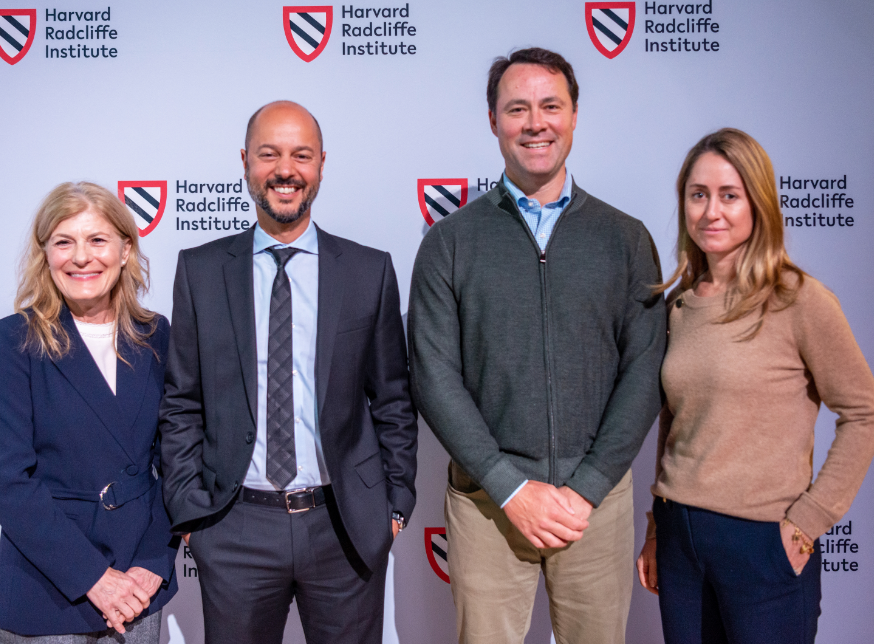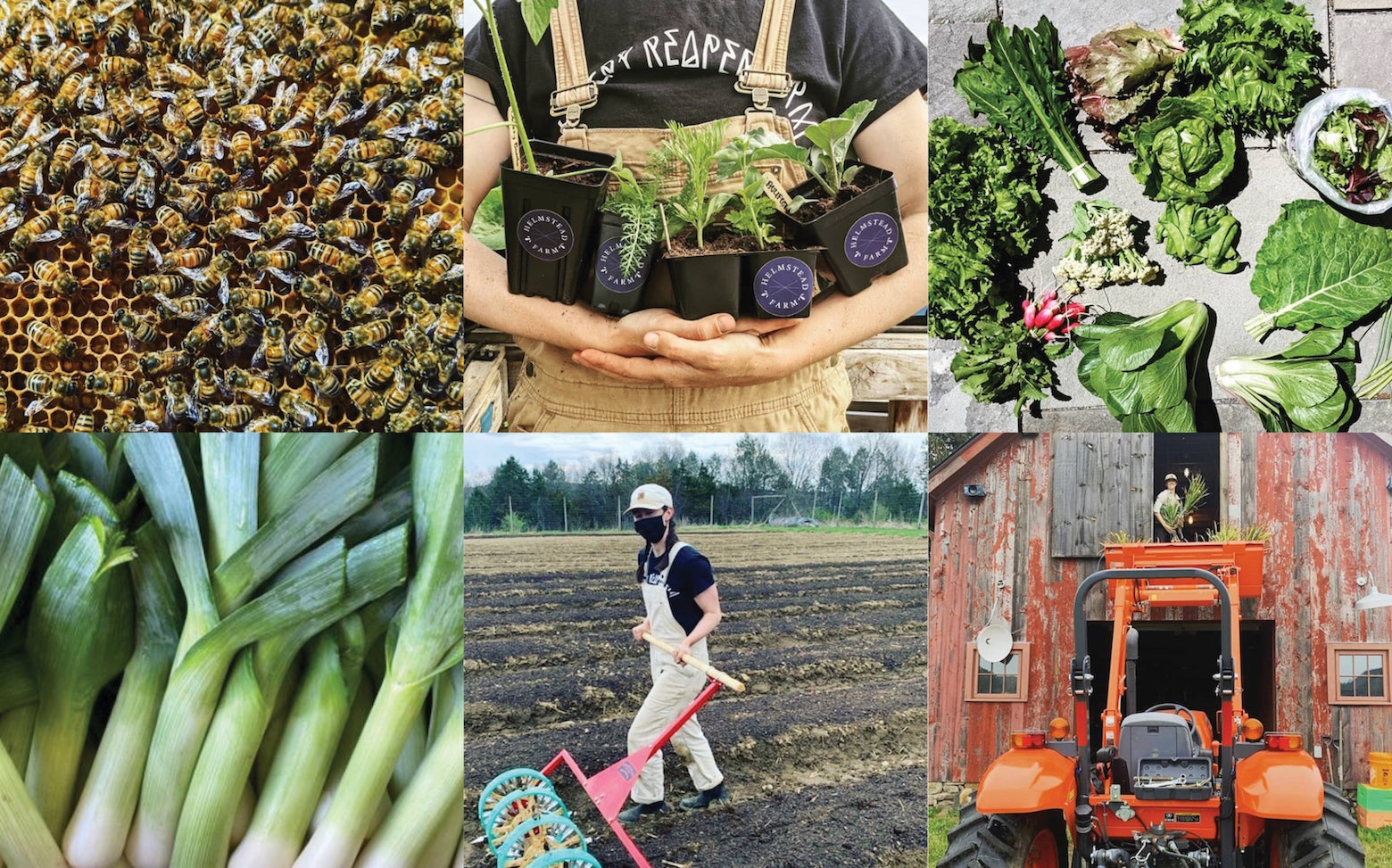For Mike AB ’97 and Nina Patterson, addressing the global climate crisis is deeply personal. Mike’s close relationship with his grandfather, an ardent environmentalist, served as an inspiration from an early age. For Nina, having children was a major impetus as she considered what climate events they would face in the future. She now runs an 85-acre organic farm in Connecticut, which the couple founded in 2020 and called Helmstead Farm—a play on “homestead” incorporating letters from the names of their three children.
Their commitment to climate action is also a major focus of their philanthropy. The couple recently established the Mike and Nina Patterson Catalyst Fund for Climate at the Harvard Radcliffe Institute (HRI) to support the HRI Climate Change Initiative, which aims to explore the impacts of the climate crisis through an interdisciplinary lens and address issues of climate justice. It will also include a range of efforts implemented in partnership with Harvard’s Salata Institute for Climate and Sustainability, which launched in fall 2022 and aims to facilitate collaboration across Harvard’s Schools to accelerate real-world climate solutions. An additional gift will provide HRI leadership with endowed support to advance key priorities and annually name a Mike and Nina Patterson Fellow in HRI’s interdisciplinary fellowship program.
“Climate change is not just a science issue, not just a policy issue, and not just a personal behavior issue—it’s all of those, and there’s a complex interplay between them,” says Mike, who is a member of HRI’s Dean’s Advisory Council. “When I think about the Harvard Radcliffe Institute, I think about its ability to study complicated problems from every angle.”
In October 2022, their catalyst fund enabled the Mike and Nina Patterson Science Symposium, convening climate experts from Harvard and beyond to assess the world’s progress. “It was really a kickoff symposium—the start of a very long, very deep journey at HRI, and we’re really honored to be a part of it,” says Mike.

Areas of focus for HRI include the human impacts of extreme weather events; uneven health and economic consequences; access to water, energy, and other vital resources; the role of business and industry; the intersection of climate and gender; and food sustainability and insecurity—an issue of particular interest to Nina.
“Agriculture can either be a climate problem or a climate solution,” she explains. Conventional monoculture farming puts more carbon dioxide into the atmosphere, while regenerative farming helps to trap it by restoring soil and ecosystem health. “We should be working with nature, not against it, just as we can with the sun, the wind, and the oceans to create renewable energy.”
Giving Back and Paying It Forward
Longtime supporters of the Harvard College Fund and the Faculty of Arts and Sciences (FAS) more broadly, the Pattersons are also providing current-use and endowed funds to support FAS leadership and priorities. Current-use funds give the FAS the flexibility needed to meet the immediate needs of the moment, explore new programs and initiatives, and sustain core activities at the FAS, such as the student experience, teaching and learning, research, and athletics. These resources are essential to catalyzing exciting new ideas and fueling real-world impact.
Flexible gifts from donors like the Pattersons also enable the FAS to invest in extraordinary talent—another School priority—including the network of ambitious, talented, and creative individuals who compose its faculty. Experts in their fields who have a deep desire to change the world, these faculty train the leaders of tomorrow, helping undergraduates develop into independent thinkers and preparing them to navigate complex issues with curiosity and care. Supporting the best minds across the arts and sciences enables Harvard to maintain its place as a leader in research and education.
“I have an emotional attachment to the College as an alum,” says Mike, “so being able to give there feels like paying it back and hopefully paying it forward for others.”

